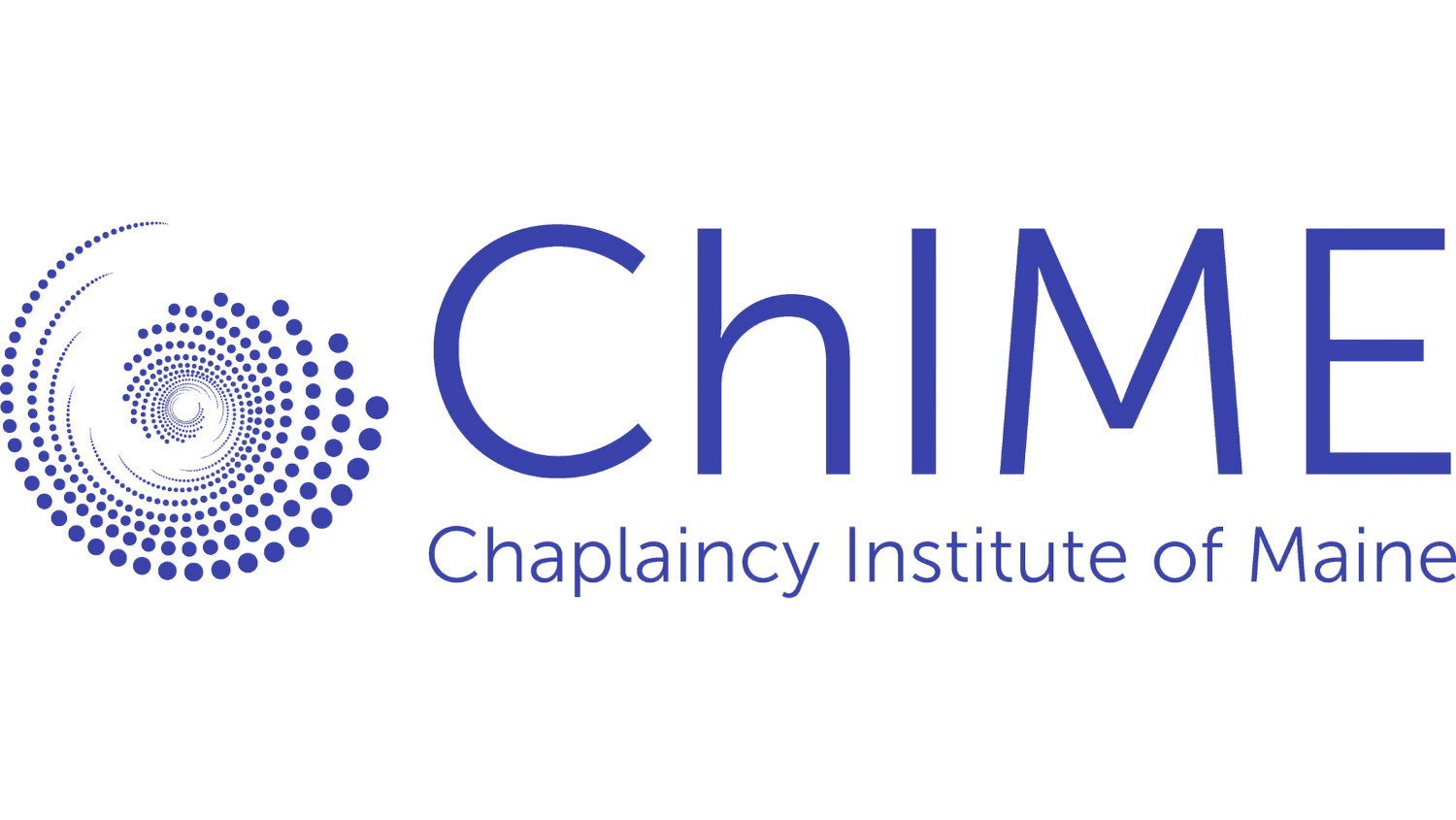Interfaith Ministry: Program Structure
Through participation in weekly face-to-face or virtual classes, monthly workshops, and community-wide events, students are invited into a Beloved Community of Interfaith-oriented individuals.
Whether in-person in ChIME’s Portland classroom or online via Zoom, weekly classes are multi-dimensional and experiential. While no two classes are the same, a typical class may include meditation, prayer, presentation of information, time for personal reflection, journaling, peer sharing, artistic expression, and music.
One of the hallmarks of the interfaith ministry program is a highly intimate learning environment with a low student-to-faculty ratio. Each student is a member of a class cohort that meets once each week - either face-to-face or virtually - beginning in September and ending in June. There are several breaks each year that coincide with the public school schedule.
Each cohort includes six to twelve students, a size that allows for deep discussions, meaningful reflection, and a supportive community.
One weekend per month, the blended and in-person cohorts gather for 2 days of immersive workshops. Workshops create an opportunity for students to interact across cohorts as they delve deeply into learning and sharing in a topic that is relevant to all students, regardless of where they are in their ChIME progression.
Fully online students engage with the content of the workshops and retreats on their own time and in their own environments. Each asynchronous workshop will include approximately 6 hours of readings, video, practices and prompts.
Asynchronous and In-person workshops are followed by an online gathering of the cohort during which students come together to reflect, discuss, and begin to integrate the lessons into their own lives.
In January and February, all cohorts will gather for synchronous workshops offered on Zoom.
Twice a year, students gather for retreat rather than the monthly workshop. Typically held the first weekend of December and the first weekend of March, these extended periods of work, study, and play allow for an even deeper immersion in a topic of study.
Online students will engage with the themes of the retreat through readings, video, prompts, and invitations to extended personal practice.
Blended and in-person students and staff will meet for an overnight retreat Friday-Sunday. Community relationships grow deeper as people have an opportunity to connect with one another in varied contexts and over an extended period of time.
As with the workshops, asynchronous and in-person retreats are followed by an online gathering of the cohort during which students come together to reflect, discuss, and begin to integrate the material within their own lived experience.
The cohort model is an integral aspect of ChIME’s interfaith ministry program as students provide a strong foundation of community support for one another. Cohort members provide consistent, compassionate peer support to one another while guest facilitators bring depth, passion, and fresh perspective to each week’s teachings. All students are assigned an alumni Spiritual Companion and a Faculty Advisor, both of whom provide support and guidance along the way. Additionally, each student identifies a Spiritual Mentor in their lives who will provide additional support through the ChIME journey.
The Interfaith Ministry Program requires 150 hours of volunteer service each year. During the first year, students can explore a wide variety of volunteer opportunities and, in fact, are encouraged to step out of their comfort zone and towards what might seem challenging. During the second year, the 150 hours of service takes place within the context of a focused, supervised internship. Students are encouraged to seek out volunteer service and internship placements in their own communities and according to their interests, however, ChIME can suggest possible agencies, sites, and programs.
“I’m ready to grow into the academic and clinical realms of work for which ChIME has laid a wonderful heart-centered foundation.”






